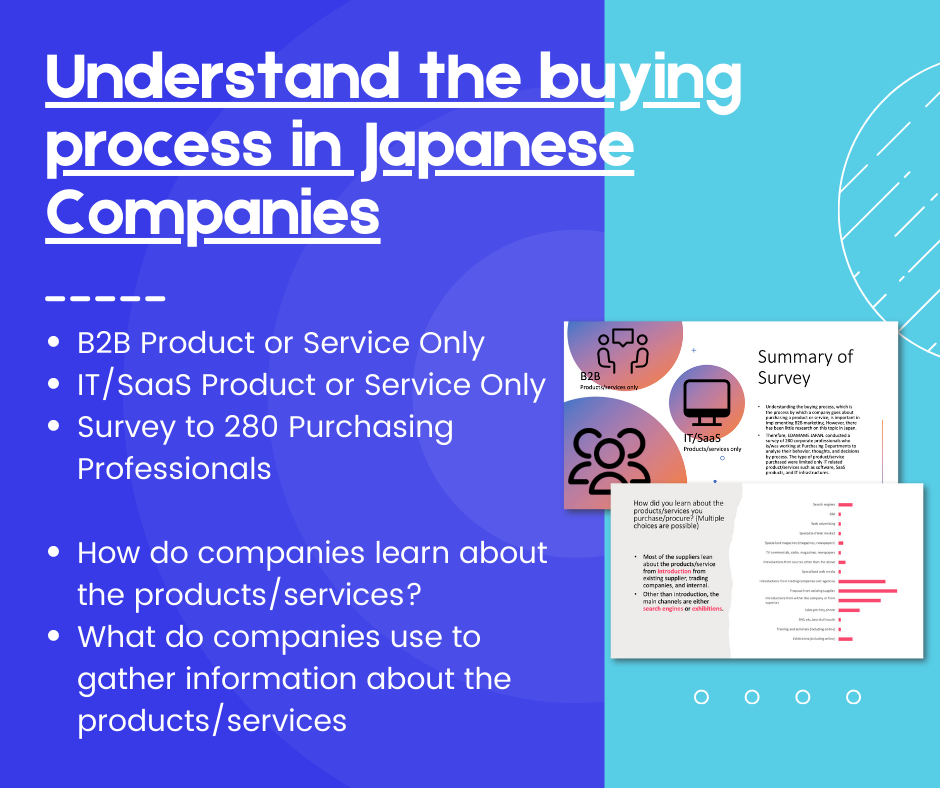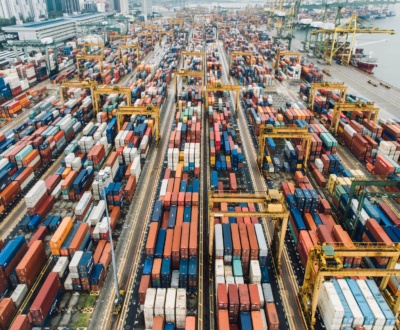How to Find the Best Japanese Translator or Translation Agency

With the recent development of AI machine translation, natural translation is becoming more and more readily available. There may be some content, such as email content, that you don’t need to go to the trouble of hiring a Japanese translator or translation company. So, when should you hire a Japanese translator or translation company?
There are many cases in the translation world where a client chooses a translation service because it is inexpensive but finds out that the translation turned out to be terrible and substantially redone. In the world of translation, this is a frequent occurrence. Cost reduction is meaningless if achieved by compromising quality, cutting corners in the process, or unreasonable discounting.
In most of the case, the cost of Japanese translation is proportional to the quality you get. If you ignore the quality, the price can be as low as you want, but if the translation is cheap but doesn’t meet the standards you demand, it’s just a waste of money.
What are the advantages and disadvantages of hiring a translator or translation agency specializing in Japanese? Is it OK to use machine translation or translation by in-house personnel? How do I find a reputable Japanese translation agency? What types of Japanese translation agencies are there?
I will try to answer these questions and explain the characteristics of the translation industry.
- Is free machine translation sufficient for English to Japanese translation?
- Is it safe for someone with in-house language skills to translate from English to Japanese?
- How do I find a Japanese translation company or translator?
- Search for Japanese translation companies and translators using search engines
- Select appropriate search terms and search
- Use a directory service to find a Japanese translator or translation agency.
- Request Japanese translation through crowdsourcing
- Request a Japanese translation company (subcontracting type)
- Request a Japanese translation company (in-house translation type)
- What types of Japanese translation companies and Japanese translators are there?
- Translation companies and translators specializing in a particular field
- Translation companies and translators for a wide range of fields
- Translation companies and translators specializing in a particular medium of expression
- Translation companies and translators specializing in video translation
- Translation companies and translators who also undertake content production
- Translation companies and translators who also undertake planning and production
- A translation company offering cheap translation services
- Translation company offering cloud translation (24-hour service)
- How to choose a Japanese translator or translation agency that you are looking for
- Final Thoughts
Is free machine translation sufficient for English to Japanese translation?
Machine translation is a system that performs translation by programming (mechanically, as the name suggests). The most famous ones are Google Translate or DeepL.
In recent years, there has been an increase in the number of AI machine translation services available for free on the Internet. So there is no need to pay for a translation service for some short words.
The natural language we speak in everyday life is very complex, and it is not universal. There are various cultural and historical backgrounds, many exceptions, and regional differences. The meaning and usage of words are constantly changing due to the influence of the Internet, especially for the Japanese language.
In English to Japanese translation, phrases may not work in different languages. They may need to be translated, and in some industries, the corresponding terminology may vary depending on the field or era.
Therefore, it is still difficult for machine translation to translate a document perfectly. At least when it comes to English to Japanese translation, it will be a while before machine translation is sufficient.
In addition, selecting the appropriate style, translation, formatting, and nuance of the text depending on the purpose of the translation is a skill that only a professional human translator can perform.
Is it safe for someone with in-house language skills to translate from English to Japanese?
Be careful when asking someone who doesn’t typically translate to do the translation work for you.
It is challenging to make translation work because you can speak Japanese or have studied abroad in the past. ISO 17100, the international standard for translation, stipulates that translators must have at least five years of translation experience (or at least two years plus a degree)
In other words, just because you have language skills doesn’t mean that you can translate; you need to be able to translate in a business environment with a particular frequency before you can be considered a translator. This is unless, of course, you have already established a system or specialized unit within your company that is capable of efficiently carrying out translation work.
Ultimately, it’s better to leave it to a professional Japanese translator or translation agency for the best cost performance.
In addition, when particular skills are required, such as when translating an English movie into Japanese or when a translator and narrator are needed, a translation company specializing in translation will come into play.
How do I find a Japanese translation company or translator?
Search for Japanese translation companies and translators using search engines
Search engines are now the easiest and most versatile way to find a Japanese translator or translator.
Many translation companies place text ads for keywords frequently searched for in search engines, so you can easily find out what kind of translation companies are available.
It is important to note that a more prominent position in the search engines and high quality may not always be matched or proportional.
You need to scrutinize each individual service and contact them via online form or phone if necessary.
Select appropriate search terms and search
Although not limited to web searches, the key to efficiency is to use both more general and generic keywords and specific keywords as clues when conducting searches.
Examples of keywords used to search for Japanese translation companies and translators include “Japanese translation.” Other keywords such as “Japanese translation agency/translator rates,” “Japanese translation agency/translator requests,” “Japanese translation agency/translator estimates,” and “Japanese translation outsourcing” are also used in the search.
Examples of specific keywords include “medical translation” or “academic paper translation” combined with the type of document or field of expertise.
Use a directory service to find a Japanese translator or translation agency.
In addition to web search engines, you can also use a directory service that specializes in Japanese translations.
In the case of web search engines, information such as comparison sites and rankings tend to be mixed in. On the other hand, directory services have the advantage of removing inappropriate information in advance because it is a list of items classified and organized by human beings.
The translation companies on the Japan Federation of Translation Associations website are highly listed and easy to use. Other relatively well-known directory services for finding translation companies include the “Translator Directory” and the Japanese translator and translation company search service within the translator community “ProZ” and others are relatively well known.
Request Japanese translation through crowdsourcing
Some freelance translators are not directly affiliated with a translation company but work as sole proprietors of Japanese language translation services.
In many cases, freelance Japanese translators are registered with a translation agency and work as intermediaries for translation projects. Still, recently it has become possible to request translators directly through translation request matching services, such as Upwork and other crowdsourcing (cloud translation and social translation) services. It is also possible to ask translators now through services such as crowdsourcing (cloud translation and social translation).
Depending on the service, translators registered with Cloud Translation (Social Translation) may be semi-professional translators who have other primary jobs. One of the features of Social Translation is that proofreading of the translation results is omitted, and the price is reasonable.
Some freelance Japanese translators excel in specific areas of expertise and perform at a high level. However, it can be dangerous to be overconfident or have excessive expectations about quality.
If you need a solid translation, you can only choose a translation company or agency that ensures a certain level of quality through its Japanese translation services.
Related Article: The 3 Most Popular Upwork-like Platforms for Hiring Japanese Freelancers
Benefits of Cloud-Based Japanese Translator
Compared to other translation services, the most significant advantage of cloud-based translation is speed.
The exchange is completed on the web, and the translation can be delivered in as little as 10 minutes after the request (a few words or a short phrase). This system supports the speed of delivery. When a translation is requested, an email is sent to all the translators registered with the service.
Disadvantages of Cloud-Based Japanese Translator
The disadvantage of cloud-based translation is that the quality cannot be guaranteed, which is a direct result of the disadvantages of crowdsourcing.
Crowdsourcing is essentially an initiative that aims to provide a place where orderers (those seeking services, mainly companies) and order-takers (those providing services) can meet directly. Still, unless you look carefully at reviews and profiles, the quality of the order-takers cannot be guaranteed.
Request a Japanese translation company (subcontracting type)
We are the most common type of translation company in the Japanese translation industry.
A sales representative (coordinator) acts as a relay between the client and the translator in this system. When a client requests a translation, the coordinator selects the most suitable staff member or freelancer from the company’s database, communicates the client’s request, and reassigns the job. If no translator can be found in the company’s database, the company will search for a freelancer on the Internet or subcontract the work to another translation company. When the translation is finished, the translator (or translation company) delivers the translation to the translation company, which in turn provides the translation to the client.
Advantages of a translation agency (subcontracting type)
There are two main advantages to outsourcing translation companies: first, the client does not need to find a translator or give instructions. The first is that the client does not need to find a translator or give instructions; the translation company does everything for the client.
The second is that it is available in many languages and fields. “We cover 30 languages worldwide!” “or “We cover 120 languages and all areas! or “120 languages and all fields covered! Imagine this. You need to translate your manual into 80 languages. If you hire a translation company that can only handle 30 languages, you’ll have to find another company to solve the other 50.
In some cases, you may need to assign the work to 10 or more companies. However, if you hire a translation company that can handle 120 languages from the start, your hassle is done in one go. This is one of the most significant advantages of outsourcing translation companies.
Disadvantages of a translation agency (subcontracting type)
Between the client and the translator, one or more translation companies come in. This is where three significant disadvantages arise: the first is misdirection. Your requests need to be communicated to the translator. Still, the sales representative or coordinator of the translation company is often not familiar with translation (most only speak English and have no experience working as a translator). In that message game, the information loses its accuracy and turns into different requests. The more participants in the message game, the more you want to cover your eyes.
The second is the deterioration of quality. Even if the message game miraculously succeeds, the number of translation companies that come in between will generate a margin. Then, even if the compensation is reasonable at first, the translator’s per-word rate will drop to an abnormally low level due to the middleman. At this point, it’s no longer up to the professional translator to deal with the situation (a similar end result to cloud-based translation).
The third is the problem of information leakage. As many people as there are in the message game, the translated manuscript is duplicated and transferred, and if it falls into the hands of people who are not IT literate (working in cafes, using free Wi-Fi or apps, not encrypting information, etc.), information about the client and the manuscript can leak out in the blink of an eye.
Request a Japanese translation company (in-house translation type)
As the name suggests, an in-house translation company does the translation in-house. The translation is done by the company’s employees rather than being passed on to someone else. In many cases, the company’s president is also a translator who can speak foreign languages, so it is characterized by its craftsmanship and a solid commitment to quality.
Advantages of a translation agency (in-house translation type)
In the case of in-house translation companies, in many cases, all employees are translators. From the initial inquiry to the delivery of the document, our professional translators are on hand to explain and propose solutions to both superficial and complex linguistic and technical issues. Because we have up-to-date information and experience daily, we have a high level of technical competence and can solve seemingly impossible problems in surprising ways.
As a result, the quality is very high, making it ideal for cases where the excellent translation is required. Also, because the translator and the company are the same, there is a strong awareness of information security, and IT literacy tends to be high.
Disadvantages of translation agencies (in-house translation type)
In-house translation companies seem perfect, but of course, they have their weaknesses. First of all, because they do not outsource translation to other companies, they are limited in many languages and fields they can handle. As shown in the example above, it is impossible to translate 80 languages at once, so the client has to split the work between several translation companies.
Also, as a small, elite team, we cannot work on multiple projects at the same time. “If you don’t check the schedule in advance and say, “I have this translation coming up soon, will you be able to handle it? If you don’t match the schedule in advance, you may not take urgent translations. This is a hassle that cloud-based translation and outsourced translation companies rarely have, so it can be a bit of a hassle to use.
What types of Japanese translation companies and Japanese translators are there?
Translation companies and translators specializing in a particular field
Some Japanese translation companies specialize and specialize in the translation of specific specialized areas. This is especially true in the areas of medicine, law, economics, and finance.
One of the significant translation needs in the medical field is to submit papers to academic conferences, and in the legal area, to prepare documents such as contracts. In addition to the rigorous nature of the documents, the speed at which information is updated and changed in the industry is breakneck.
Translators are also constantly studying the areas in which they specialize and adapting to changes in translations, new terms, and concepts.
In addition, the translation of subtitles for movies and tickers for documentary programs can also be said to be a specialized field of translation. These genres are also the work of specialists who translate under various special conditions, such as word limits and the selection of words that can be understood instantly, based on the characteristics of the media.
Translation companies and translators for a wide range of fields
For some industries, such as medicine and patents, translation companies specialize in that field, but many companies offer a wide range of services for many other industries.
These translation agencies have many different types of translators registered and on staff, each with their specialties. In addition, there is a “coordinator (project manager)” who will help you find the right translator based on your needs and the content of your document.
However, there are cases where highly specialized translations of specific genres are not covered. It is advisable to inform them roughly of the field and expertise of the translated document in advance to confirm whether they can handle it or not.
Translation companies and translators specializing in a particular medium of expression
Translating for a specific field, such as marketing or copy, requires a particular environment and unique know-how to solve.
In fields where the medium is specific, such as publishing translation, video translation, and dubbing, translation companies specialize in that medium. If you need special equipment, you will need to find a translation company specializing in this field.
For example, voice dubbing requires a recording studio in addition to the translation work environment. In such cases, it is best to work with a specialized translation company or agency with a recording studio.
In many cases, the strength of a specialized translation company lies in its accumulated know-how and wealth of knowledge and information about the relevant industry. In other words, it is a type of translation company that focuses on depth rather than breadth.
However, this does not mean that only a translation company specializing in a particular medium can handle such translation projects. Many companies will take various measures to make translation projects possible, such as arranging facilities and equipment.
Even if they don’t advertise their services, they may be able to help you. It may be adequate to select a translation company based on various conditions and then inquire afterward.
Translation companies and translators specializing in video translation
Translation genres such as video translation, publishing, and simultaneous interpretation are very different from other translation services due to the nature of the media. For this reason, it is a genre in which translators and translation agencies are particularly likely to specialize.
Video translation is a type of translation that focuses on visual works such as movies and television. Since the images flow with time, it is necessary to have enough sentences that can be read in a certain amount of time and weave words that can be easily understood. Since the images are the main focus, the translated text must not interfere with the pictures and must be readable at the edges of the pictures.
Translation in publishing depends mainly on the field of the book and its content. Still, in the case of literary works, it is also essential to maintain the atmosphere and lyricism of the original text. In the case of literary works, keeping the atmosphere and lyricism of the original text is also an essential factor. Since the academic quality of the translated text is also questioned, it is understandable that the translator’s name is significant.
Translation companies and translators who also undertake content production
Media such as printed materials, application forms, and websites require a great deal of knowledge and expertise, not only in the content of the document but also in creating the media in which the document will appear. Some translation companies will take care of the production of these media simultaneously as the translation.
For example, in the production of publications, if you hire a translation company or vendor that can handle the creation of translated documents, including DTP (design, layout, typography, etc.), you can be sure that the data will already be ready to be printed when it is delivered.
In the case of website production and creating the design and layout through HTML and CSS coding, some translation companies also undertake the construction of database systems. Translation companies involved in the production of such media are often also good at planning and proposal.
If you want to outsource the production of media separately from the translation, you may want to consider letting the translation agency handle it simultaneously.
Translation companies and translators who also undertake planning and production
When using a web search engine to find a translation company that can handle the planning and production of printed materials and websites, it is common to combine keywords such as “translation” with keywords related to books and websites. Still, there is a trick to choosing the right keywords to get exactly what you are looking for.
For example, suppose you are looking for a translation service for a book you are publishing. In that case, it is essential to use keywords that directly relate to the production process, such as “printing” or “desktop publishing.” If you use keywords such as “translation book” or “translation publishing,” your search is likely to return books about the translation industry and translation techniques, as well as information for people who want to become translators in the field of publishing and translation.
In the case of website development, if you simply search for “website,” you will get a mixture of free machine translation services and translation software introduction pages, so you can narrow down your search results by including keywords related to development, such as “website development” or “website construction.” You can narrow the search results by including keywords related to production, such as “website production” or “website construction.” We can say that we are a translation company/translator that also offers SEO services.
A translation company offering cheap translation services
Some translation companies provide translation services at a lower price than others.
Many of these companies keep their prices low by managing their translators’ spare time and by eliminating processes such as rewriting and proofreading.
In general, terms, translating highly specialized texts inevitably involves a certain level of cost. You will need to weigh the cost against the quality and determine whether a low price is OK or whether a low price and high quality is OK.
Translation company offering cloud translation (24-hour service)
Most of the so-called “translation companies” are companies, so they are open during business hours during the day. Consultations and requests for quotations can be made through the inquiry desk at any time. Still basically, inquiries made outside of business hours will be handled on the next business day.
Recently, services have emerged that take advantage of the Internet to match translation projects with translators worldwide. This service is available virtually 24 hours a day, as it can take advantage of time differences.
After placing an order, if you find a translator who meets your requirements, you can start translating right away and deliver the document after the translation is completed. These services are often referred to as “cloud translation (social translation).”
How to choose a Japanese translator or translation agency that you are looking for
Determine your own needs for Japanese translation.
If you will have ongoing translation requests in the future, it is essential to determine your “needs” for what types of translations you will need.
If you’re translating in a specialized field (IT, medical, legal, financial, advertising, etc.), you want to choose a translation company with a lot of experience in that field. Do you need a large volume of translations to be completed quickly? Or do you plan to have a moderate amount of translations on an ongoing basis?
When a large number of translations need to be delivered in a short period, multiple translators work on the project simultaneously, as one translator cannot complete the work. Typically, in such cases, the translation is checked by a proofreader at the end to ensure consistency of vocabulary and expressions. However, translation companies that offer low prices sometimes omit this proofreading step. This can lead to inconsistent English expressions within a single document, which can cause misunderstanding and confusion among readers.
Ideally, the most effective way to ensure quality control is for a specific Japanese translator to be responsible for a project ongoing.
However, suppose a large volume of translation is required in a short period. In that case, it is necessary to compile a certain amount of information on the terms and expressions to be used in advance, prepare an environment in which each translator can work according to the instructions, and always have a proofreader check the work.
The level of quality required also depends on the target audience and purpose of use. The rate that is acceptable for internal use may be unacceptable for customer use.
There are also different types of translation styles.
It is not enough to simply translate accurately in fields such as marketing and advertising, where readability and creativity are essential. They need to be written to appeal to the customer and therefore require a very high level of writing skills.
On the other hand, if the document is in the legal field, it is forbidden to add expressions that are not in the original text. It is of utmost importance that the translation is completed accurately and in a manner that is appropriate for a contract. In this way, you should decide on the style of translation you want, if you wish to emphasize accuracy rather than readability, or whether you want to effectively convey your core message even if you have to rearrange the text boldly.
Of course, the higher the quality requirement, the more proportional the cost.
This is not only because we have excellent translators who can handle high-quality requirements but also because of the different processes of native checking and proofreading and the work required to maintain project-specific glossaries and style guides to ensure consistent quality control.
At a reliable translation company, a coordinator (also called a project manager) will act as the point of contact and oversee the entire process, communicating closely with the client to ensure the best possible translation (more on coordinators later).
Once you’ve decided on the direction you want to take your translation, it’s time to choose the translation company and translator that best matches that direction.
Search for translation companies based on the field of translation and the keywords that are important to you (“high quality,” “low cost,” “speedy,” “creative,” etc.) and check their websites. You will be able to gather information on the fields of translation, the type of fees, the speed of delivery, the translation process, past results, and whether or not the company is certified by government agencies (depending on the field of expertise).
On the other hand, if you have a wide variety of translation requests, a medium to a large translation company that can handle a wide range of requests may be appropriate if you need to translate both advertising and legal documents.
Request a Trial for Japanese Translation
Once you have gathered information on several Japanese translation companies, you should inquire about the possibility of a “trial.” Usually, there is an inquiry form on their website. Many companies also offer free trials of up to 200 words in English and 400 characters in Japanese.
By looking at the speed at which they respond to inquiries, you can predict how well and how quickly they will respond to your actual translation request. If you don’t receive a reply within a few days, or if communication is not going smoothly, you should shift to another translation company.
If you can successfully request a trial, share your desired style with the translation company in advance, as mentioned in “1. Determining your needs. Then, check the finished translation to see if it is of the quality you need in terms of speed, accuracy, expertise, and writing style.
If the quality of the translation is significantly different from what you want, it may be safe to decline at this point. However, both the translation company and the translator will be in a state of uncertainty when working with a new client. We recommend that you first discuss your concerns honestly with the client, as it is often possible to reconcile attitudes by telling them precisely where and how you would like to see improvements. If you have similar reference materials, we encourage you to share them with us as well.
See how well you fit with the coordinator.
Here’s another benefit of contacting a translation agency and doing a trial.
Of course, the translator does the actual translation, but it is the coordinator in charge (otherwise known as the project manager) who plays the role of a control tower, so to speak, over the project.
Translation companies usually employ many translators, and the areas of expertise, quality, and style of each translator can vary considerably. The coordinator, therefore, accurately assesses the client’s requirements and assigns the translation work to the most suitable translator, taking into account the schedule and budget. In addition to the coordinator’s knowledge of a particular field, the coordinator gives instructions to the translator about the style of translation based on communication with the client.
The coordinator has a considerable influence on the quality of the translation since the translator only completes the translation based on the coordinator’s instructions. Also, each coordinator has a different policy on translation (some prefer accuracy, some prefer readability, etc.).
If you have a good relationship with your coordinator, you will obtain a stable supply of better-quality translations. On the other hand, if you don’t get along well with your coordinator, you may find it challenging to get the translation you want.
Final Thoughts
To avoid making mistakes when choosing a Japanese translation service, it is first essential to know what services are available, how they work, and their features. Next, you need to think about the specific purpose of the translation and clarify the results you are looking for. And finally, to avoid failing on the price, check the content of the planned deliverables.
With so many different companies and individuals in the market, we have introduced a few points to help you find the right translation company and translator for your needs. We hope you will take advantage of these points to develop your business.
About us and this blog
We are a digital marketing company with a focus on helping our customers achieve great results across several key areas.











